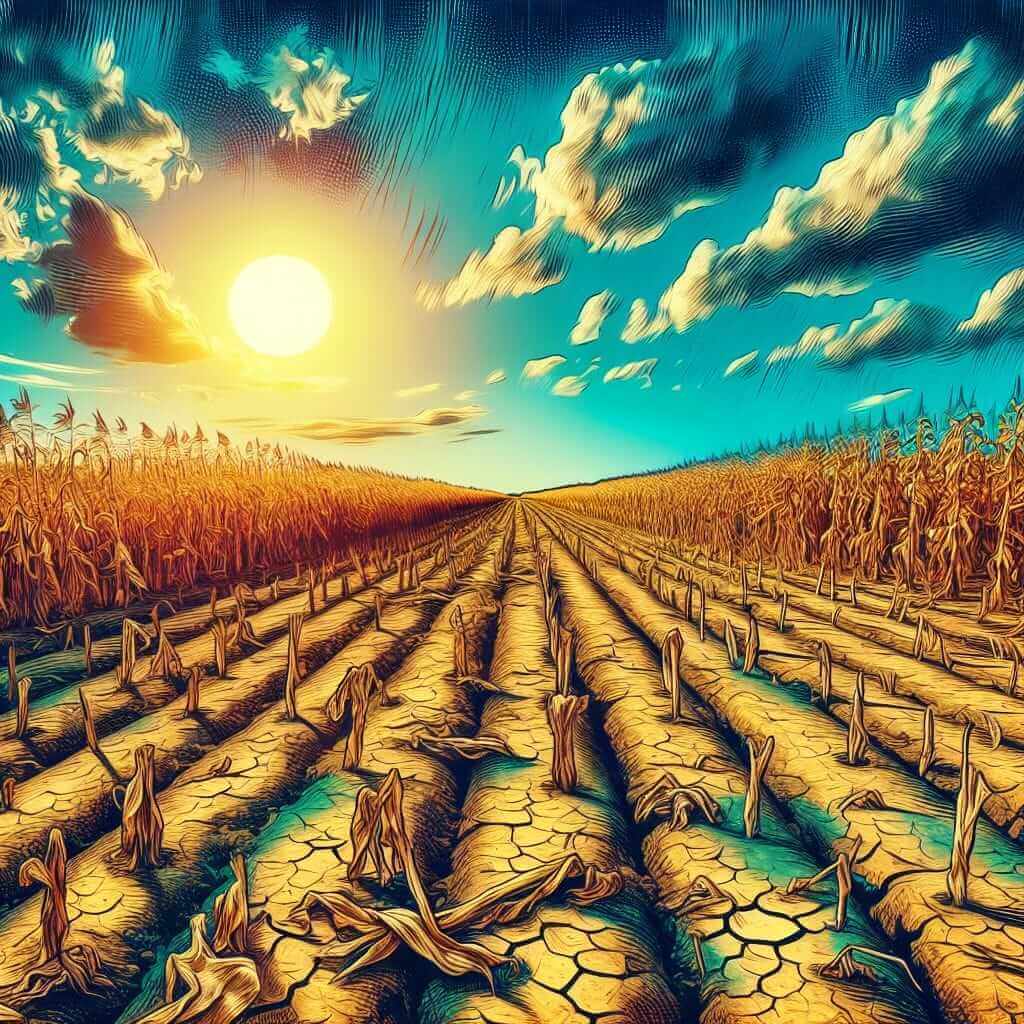Reading is a critical part of the IELTS examination, testing your ability to understand and interpret academic texts. This task often features contemporary and scientifically significant topics. One such vital topic is “How does climate change influence food security?”. Given the global interest in climate change, its impact on food security has appeared in previous IELTS exams and is likely to be featured again due to its relevance and scope.
Main Content
Reading Passage: Medium Text
The following passage is designed to closely mimic the type and complexity of texts you might encounter in the IELTS Reading section.
Title: The Impact of Climate Change on Food Security
Climate change poses a significant threat to global food security, influencing several interconnected aspects of food production, distribution, and quality. Temperature rises, changing precipitation patterns, and increased frequency of extreme weather events are all contributing factors disrupting agricultural productivity.
Climate change affects crop yields directly through heat stress and indirectly by altering the prevalence of pests, diseases, and weeds. High temperatures can inhibit plant growth and reduce the fertility of soils. For instance, crops such as wheat and rice, which are staple foods for a significant portion of the world’s population, are sensitive to temperature increases during crucial growth phases like flowering and grain filling.

Water scarcity is another critical issue exacerbated by climate change. Reduced rainfall and more severe droughts have a cascading impact on irrigation-dependent agriculture. For example, the Middle East and North Africa regions, already among the most water-scarce in the world, face serious challenges to maintain crop productivity under changing climatic conditions.
Furthermore, extreme weather events such as floods, hurricanes, and heatwaves directly damage crops and livestock, disrupt food distribution channels, and increase post-harvest losses. These events can undermine local and global food markets, leading to higher food prices and reduced access to nutritious food, particularly for vulnerable populations in low-income countries.
In addition to these immediate effects, long-term changes in climate can lead to shifts in agricultural zones. Regions previously unsuitable for certain crops may become viable, while traditional agricultural areas may face declining productivity. This necessitates adaptive strategies, including the development of climate-resilient crop varieties and investment in sustainable agricultural practices.
To combat these challenges, coordinated efforts at global, regional, and local levels are necessary. Promoting sustainable agriculture, investing in early warning systems, and enhancing food distribution networks are critical to ensuring that the global community can adapt to and mitigate the impacts of climate change on food security.
Questions
Multiple Choice
-
According to the passage, which of the following is a direct effect of increased temperatures on crops?
- A) Increased rainfall patterns
- B) Heat stress on plant growth
- C) Enhanced soil fertility
- D) Reduced frequency of extreme weather events
-
What challenge is particularly mentioned regarding the Middle East and North Africa regions?
- A) Increased frequency of hurricanes
- B) Water scarcity affecting irrigation
- C) Change in agricultural zones
- D) High temperature tolerance in crops
Identifying Information (True/False/Not Given)
-
Extreme weather events only impact food distribution and not the quality of the crops.
- True
- False
- Not Given
-
Developing climate-resilient crop varieties is suggested as one adaptive strategy to tackle climate change impacts.
- True
- False
- Not Given
Matching Headings
Match the following headings with the corresponding paragraphs.
- Water scarcity due to climate change
- Damage from extreme weather events
- Global and local strategies for adaptation
Answer Key and Explanations
-
B) Heat stress on plant growth
- Explanation: The passage specifically mentions that high temperatures can “inhibit plant growth” due to heat stress.
-
B) Water scarcity affecting irrigation
- Explanation: The passage highlights water scarcity as a critical issue in the Middle East and North Africa due to reduced rainfall and severe droughts.
-
False
- Explanation: The passage states that extreme weather events directly damage crops and livestock, affecting both distribution and quality.
-
True
- Explanation: The passage suggests developing climate-resilient crop varieties as an adaptive strategy in response to climate change.
-
Water scarcity due to climate change – Paragraph 3
-
Damage from extreme weather events – Paragraph 4
-
Global and local strategies for adaptation – Paragraph 6
Common Mistakes
When dealing with a reading passage of this complexity, students often:
- Misinterpret the direct and indirect effects outlined in the text.
- Confuse paragraphs when matching headings due to similar themes.
- Fail to identify nuanced information that separates true statements from false or not given.
Vocabulary
-
Scarcity (noun) – /ˈskeəsi, /ˈsker-si/
- Meaning: the state of being in short supply; shortage.
-
Inhibit (verb) – /ɪnˈhɪbɪt/
- Meaning: hinder, restrain, or prevent (an action or process).
-
Cascading (adjective)
- Meaning: (of a process) occurring in a sequence or series, each causing the next step.
Grammar Focus
Passive Voice
- Structure: Subject + aux. verb (be) + past participle
- Example: “Climate change poses a significant threat” → “A significant threat is posed by climate change.”
Relative Clauses
- Structure: Relative pronoun + subject/verb
- Example: “Crops such as wheat and rice, which are staple foods” connects additional information about the crops.
Conclusion
To excel in the IELTS Reading section, practice passages on current and scientifically relevant topics like climate change and food security. Focus on understanding the key ideas, recognizing various question types, and expanding your vocabulary and grammar comprehension. Regular practice using structured and detailed passages, similar to the one presented, will significantly enhance your reading skills and exam performance. For further reading on related topics, you can visit Challenges of Achieving Global Food Security and Impact of Climate Change on Global Food Systems.